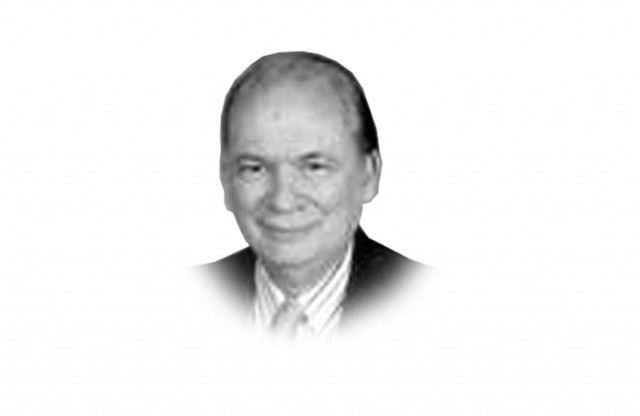English as she is spoke…
Perhaps the time has come for to officially declare the national language of Pakistan as Engdu or Urlish.

Not to be outdone, Janab Siddiqui Saheb would then follow in the footsteps of Mr Pervez Musharraf, Mr Shah Rukh Khan and Ms Preity Zinta and let it be known that the people of Karachi and Mumbai are united in their resolve to be outrageously bilingual — in the same conversation. A newspaper wag once suggested that people from Urdu medium schools who appear in talk shows conducted ostensibly in Urdu, feel that by tossing in a few words of English they are introducing a certain sophistication; and the chaps from English medium schools, who can be seen squirming in their seats because nobody told them the discussion would be conducted in Urdu, relapse into English, because they know that when they quote Yeats they’ve got the opposition over a barrel.
The late Mr Kaleem Omar wrote, in the February 27, 1992 issue of the Karachi-based evening newspaper, Star, a delightful piece on “The Pakistanisation of English”. In this dispatch he covered issues like Latin usage, a propensity to use polite forms, phrase mongering, initialism, the use of a moralistic tone, clichés, the deletion of pronouns, the yes-no confusion, reduplication and repetition, and the formality and old-fashioned correctitude of officials. “Why should millions always be teeming?” he asked, and “why are dacoits always nabbed instead of caught, political parties always grabbing seats instead of winning them and blunders always Himalayan?” Then there is this problem of dropping the definite article when it is required and inserting it when it isn’t and the confusion between singular and plural.
Imagery appears to pose another problem. This writer has often come across a passage in an article where the writer refers to a question centring around an idea. Now how can something centre around something else unless it is elastic? It can only centre on something; but it can circle around any number of things. Certain local usage, which has on occasion baffled foreigners, is the reference to one’s ‘good’ name, derived from the Urdu Aap ka ism-i-shareef; and the cousin-brother relationship that every Pakistani boy and girl seems to have.
Perhaps the time has come for the government to officially declare the national language of Pakistan as Engdu or Urlish. Then universities could give students a choice of lingoes in which to answer examination papers. Meanwhile, those institutions that still believe that the English language is one of the great glories of British culture should try to preserve its uniqueness and continue to obtain an astonishing number of first divisioners in the O-Level exams.
Published in The Express Tribune, February 3rd, 2011.















COMMENTS
Comments are moderated and generally will be posted if they are on-topic and not abusive.
For more information, please see our Comments FAQ